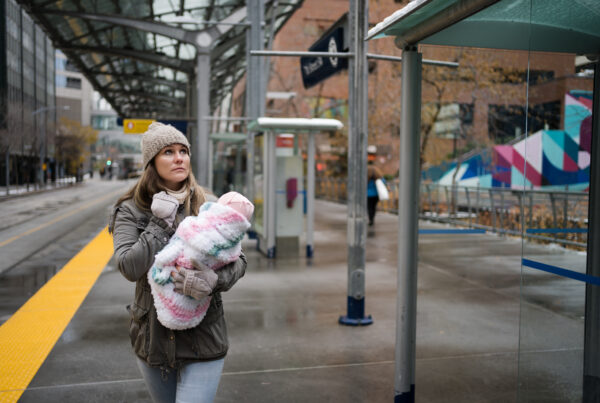Family Homelessness INNformation Series: Focus on Immigrant Homelessness
How newcomer homelessness differs from other types of homelessness in Canada
Interview with Tania Cruz
Tania Cruz, family case manager and newcomer specialist at the Inn, opens the file of yet another refugee claimant family to see photos taken by Canadian Border staff when the family first arrived. Worn and exhausted after traveling long distances with small children, she says most of these Inn clients are hard to recognize as the same people in the photos.
Cruz looks to the parents with photos in hand and says, “Keep this. Remember this, because you’re going to look back one day and see you aren’t the same person as when you first came.”
The newcomer specialist started working at the Inn four years ago as a case manager and moved into her new role a year and a half ago due to the sheer volume of newcomers entering the shelter. Surprised by the influx of refugees coming to the shelter for help, her passion for this group of people continued to grow too.
Newcomers — including immigrants and refugees — are at risk of homelessness for various reasons including language barriers, discrimination, racism, cuts to social programs, unrecognized foreign employment and education credentials, delays in work permits and/or health-related issues.
“They’re experiencing homelessness because they don’t have a home, but they aren’t experiencing homelessness the same as the general Canadian-born homelessness experience,” she says. Cruz says even though newcomers rarely have connections in Canada, to begin with, they are the hardest working people.
“The turnaround of refugee claimants is so fast,” she adds. After being admitted into the Inn, she says “they spend maybe a month here, whereas generally Canadian families spend three months in the shelter.”
Cruz adds this is typically the only time newcomers experience homelessness too.
The Inn doesn’t just house newcomers while they look for their own place to call home. Instead, clients are provided step-by-step support, ensuring they have paperwork sorted with the government, connecting them to the refugee clinic for checkups, ESL classes for parents, enrolling school-aged children in the partner school — Catherine Nichols Gunn School — and booking rental house viewings with them. She adds, “how do you call housing rentals for viewings if you don’t speak English, you know?”
While newcomers work hard with the Inn staff, finding affordable housing in the city can be a major problem for these low-income families. “It might take 10 to 20 landlords before one says yes to a family,” she explains. “Especially when they have three to five children. . . they can’t afford a four-bedroom house.”
As always, the wellbeing of the children remains a priority at the Inn, recognizing their innocence in the situation, and the importance of a positive experience for this fresh start. Cruz hopes people will begin to think about newcomer homelessness in a new light. “It isn’t just anyone coming into the border,” she says. “They’re families.”
If you would like to volunteer translation services for newcomers, please contact Tania at tania@innfromthecold.org.

















